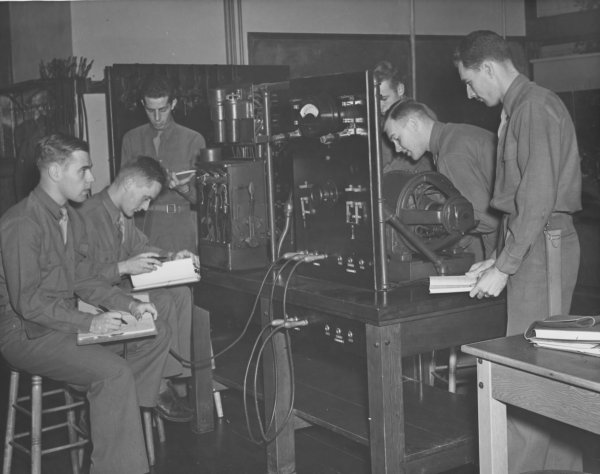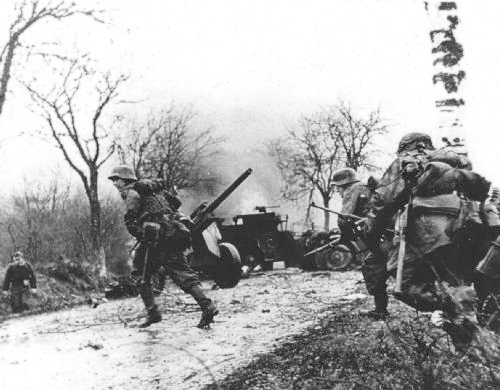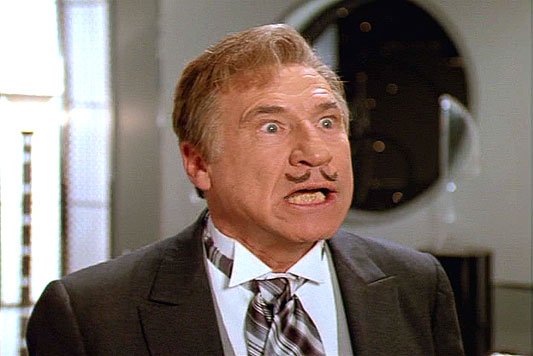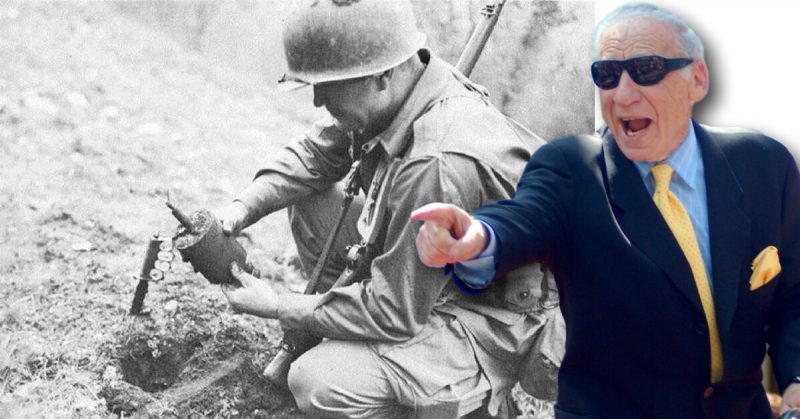War has produced many heroes who displayed inexplicable gallantry and heroism under the most harrowing of circumstances. There were also some extremely funny people who played their part as well.
Mel Brooks was one. He once quipped, “I was a combat engineer. Isn’t that ridiculous? The two things I hate most in this world are combat and engineering.” Mel Brooks went on to become a famous movie star, writer, comedian, and producer. His films have become classics, and his humor has transcended generations to remain relevant today.
Had he not been as skilled at clearing land mines as he was, the world would never have known the comedy genius of Mel Brooks.
A Rough Start in Brooklyn
Brooks was born Melvin James Kaminsky on June 28, 1926, in Brooklyn to Jewish parents of German and Ukrainian descent. When he was two years old, his father died, and Brooks grew up in poverty; a small and sickly child in the rough neighborhoods of Brooklyn.
He often said he developed his sense of humor to spare himself problems – like a punch in the face. He graduated High School and attended a year of college studying psychology before he was drafted into the Army in 1944.
An intelligent man as we were to learn from his comedy, he ranked high in testing and was sent to the elite Army Specialized Training Program (ASTP). Located at Virginia Military Institute, he undertook a variety of tasks including combat engineering. After just 12 weeks of training, the Army canceled the program, and Brooks was sent to Fort Sill for regular basic training.

Brooks was sent to Europe in late 1944. He was assigned first as a forward artillery observer, adjusting outgoing artillery fire. Not an easy task. He was then transferred to the 1104th Engineer Combat Group just in time for the Battle of the Bulge – a last-ditch effort by over 250,000 Germans to push back the advancing allies. Mel Brooks moved to the front lines to deactivate German land mines.
It’s Not Good to be at the Front
Brooks later hilariously quipped in his movie, History of the World Part 1, “It’s good to be the king,” – it was not so good to be on the front lines in a war. Combat engineers were often working in advance of the front lines to construct bridges and clear roads. They usually completed their essential work under heavy artillery fire, with mortars reigning down, and snipers taking shots at them.
On five separate occasions, Brooks’ unit fought as infantry and suffered casualties. They were the first to construct a bridge over the Roer River and built similar bridges over the Rhine. However, for most of the war, Brooks’ role was the harrowing job of defusing land mines.

The war ended as his unit was conducting a reconnaissance of the Harz Mountains and Brooks was discharged as a Corporal. Returning to America, he made his living as a drummer and pianist which were talents he had picked up as a kid.
It was around then he changed his name to Mel Brooks. In 1949, he was hired to write jokes for an NBC show, and the rest is Hollywood history. He produced classic films such as Blazing Saddles, Young Frankenstein, History of the World Part 1, Spaceballs and much more.
The Average Soldier
Brooks, like most men who served in that era, did not classify himself as a hero. He served in the war like any other and was happy to return home. He stated, “War isn’t hell… War is loud. Much too noisy. All those shells and bombs going off all around you. Never mind death. A man could lose his hearing.”

When asked what he thought about during the war, he replied,“You thought about how you were going to stay warm that night, how you were going to get from one hedgerow to another without some German sniper taking you out. You didn’t worry about tomorrow.”
For Brooks, partaking in the war enabled him to help liberate Jews from Nazi control. While he never came into direct contact with a concentration camp, he saw large numbers of starving refugees.
The world is better off that such men survived and Mel Brooks has had us laughing for decades.
